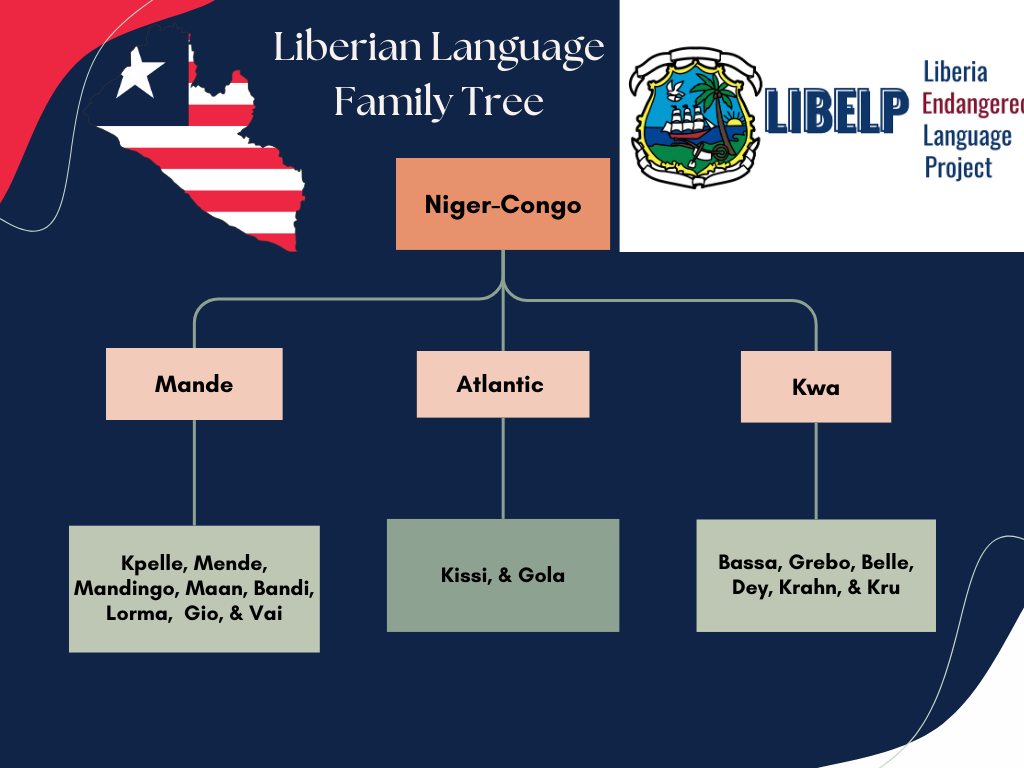On a quick note, before delving into the actual discussion, Liberia has sixteen unique languages that belong to various language groups.
The sixteen languages are: Bassa, Belleh, Dan (Gio), Dei (Dey), Gola, Gbandi, Grebo, Kpelle, Kissi, Krahn, Kru, Lorma, Mano, Mandingo, Mende, and Vai
With that in mind, learning a Liberian language can be exciting and challenging like other foreign languages. However, anyone can progress with the right approach or having a strong why.
Whether you want to speak fluently or understand the basics, here are some practical tips to help you learn a Liberian language from home.
These tips are mainly from Kayleigh Jeanette, the Project Coordinator for 7000 Languages. She has an MA in Applied Linguistics and is TEFL-certified.
She has taught and led language immersion programs, discussion sections in introductory Linguistics, English language courses, and specialized English pronunciation courses. Kayleigh has been formally studying and working in Linguistics and language instruction for ten years.
Tips on How To Learn A New Language From Home
1. Set Clear Goals—Decide what you want to achieve with the language. Maybe you want to speak it fluently, understand simple conversations, or just greet others. Having clear goals helps you stay motivated.
2. Study Every Day — Practice daily, even if it’s just for a short time. Consistency is important. Try to study at the same time each day to make it a habit.
3. Immerse Yourself — Surround yourself with the language as much as possible. Listen to songs, watch movies, or read simple books in the language. This helps you get used to the sounds and words.
4. Use Apps and Flashcards — There are many language learning apps that can make studying fun. Use flashcards to remember new words. Apps like Anki can help you track your progress.
5. Practice Speaking — Don’t be afraid to speak the language, even if you make mistakes. Talk to yourself, practice with friends, grandmother, or find a language partner online.
6. Learn Common Phrases — Start with phrases you’ll use often. This will help you begin speaking and understanding quickly. Think about what you need to say in everyday situations.
7. Make Learning Part of Your Day — Try to do your regular activities in the new language. For example, when cooking, use the language to name ingredients and steps. This will help you think in the language naturally.
8. Keep a Word List — Write down words and phrases you don’t know but want to learn. Review this list regularly to keep building your vocabulary.
9. Use Authentic Materials — Find simple books, comics, or videos that match your current level. Children’s books are a great place to start because they use simple language.
10. Have Fun — Make learning enjoyable. Play games, sing songs, or cook using recipes in the language. The more you enjoy it, the more you’ll want to learn.
11. Start Interacting Early As soon as you feel comfortable, try speaking with others. Look for language exchange partners online where you can practice speaking in a relaxed environment.
12. Don’t Be Afraid of Mistakes — Making mistakes is a normal part of learning. It helps you learn and improve. Just keep trying, and your brain will start recognizing patterns.
13. Avoid Translating — Try to think in the new language instead of translating from your first language. This will help you learn faster and more accurately.
Final thoughts
By following these tips, you'll steadily progress in learning a Liberian language. Remember, patience and persistence are key. Happy learning.
Sign up to learn a Liberian language today.
At the LIBLEP, we remain committed to preserving Liberian languages through teaching and content creation. We have expert language teachers ready to help you learn any Liberian language.
And if this resonates with you and you want to start learning a Liberian language today, sign up here.


.png)